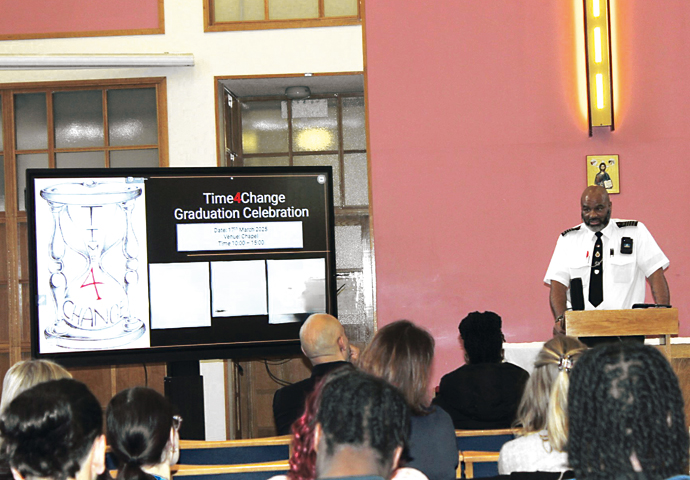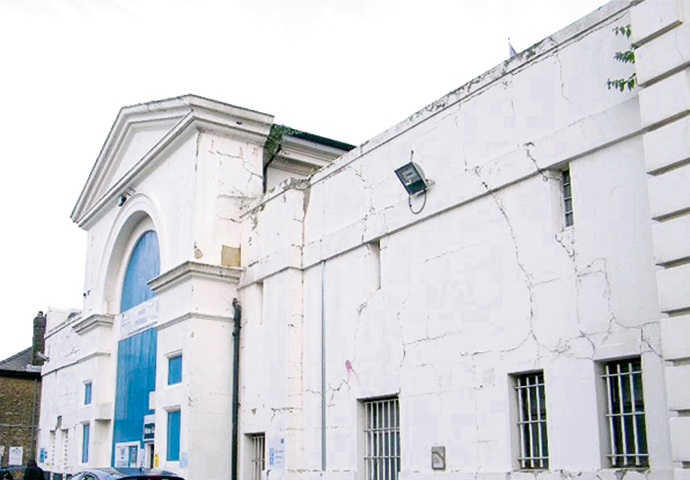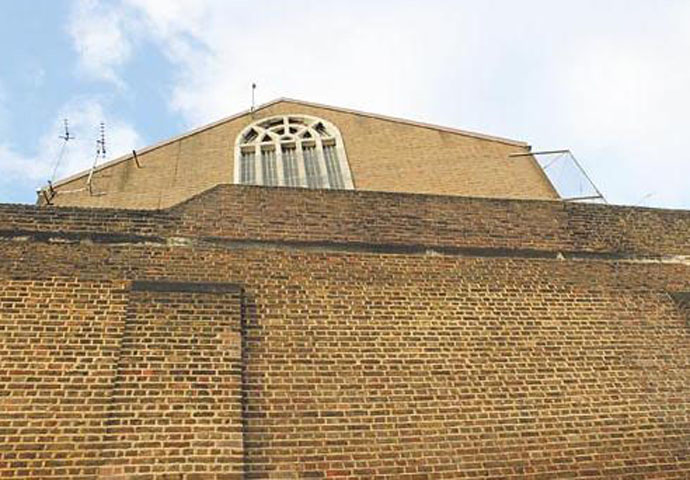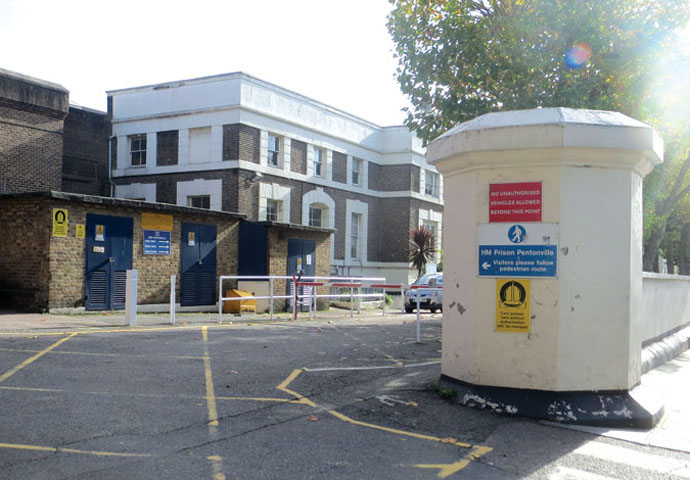Free thinking: the quiet revolution changing lives at Pentonville prison
In a justice system that’s ‘designed to blame rather than prevent’, men behind bars are being given a second chance through a new initiative
Friday, 25th April 2025 — By Ottoline Spearman

The Time4Change programme, led by Ricardo Lafuente-Dyer, a seasoned prison officer
INSIDE the walls of London’s most notorious prison, a rehabilitation initiative is slowly shaping the minds of young men.
The Time4Change programme, led by Ricardo Lafuente-Dyer, challenges a system that too often gives up on young people. Instead it equips them with the mindset and skills to re-enter the world. At HMP Pentonville – long associated with overcrowding and violence – something different is quietly taking place.
“These young men deserve a second chance in life,” said Mr Lafuente-Dyer. “The current system is designed to blame rather than prevent. It is not a criminal offence to try to survive. The goal of our programme is to make young people further believe in their abilities.”
Back in 2016, Mr Lafuente-Dyer, a seasoned prison officer, was managing G wing, a volatile mix of over 300 adult and young adult inmates. With bouts of escalating violence, Mr Lafuente-Dyer locked down the wing, but a quiet revolution took root. Many of the prisoners approached him, asking for something to be done.

At Pentonville – which has long been associated with overcrowding and violence – something different is now quietly taking place
It started with the buying of gym equipment, and soon evolved into focus groups and discussions. An early breakthrough came when a prisoner contacted grime artist Big Narstie, who agreed to visit the wing.
Big Narstie spoke about his own experience dealing drugs on a Brixton council estate, and how he had turned his life around. Around 100 men gathered, and he shook hands with every one of them.
That sense of belief that something different is possible laid the foundation for Time4Change.
Mr Lafuente-Dyer is proud of the initiative, which he described as his “brain child”. “The key to Time4Change is that it is fluid and adaptable and was born out of a collaboration between me and the prisoners,” he said.
By 2018, the programme had become a structured 12-week course, focused on themes like knife crime, fatherhood, drug awareness, and mental health.
Participants are equipped with hard skills including CV writing, DVLA revision classes and arts and crafts. Two psychologists visit weekly, delivering workshops on trauma and identity.
There is no discussion of specific crimes; instead, the focus is on challenging preconceptions that may have led to committing the crimes.

“We don’t talk about why they’re inside. I don’t want to have any biases. I’m interested in what they’re doing now,” Mr Lafuente-Dyer said.
Sessions are now held four times a week, each lasting three hours. Groups are capped at 15 to ensure that everyone is comfortable speaking, and the programme is open to all, provided they are between the ages of 18 to 25.
After the programme started, Mr Lafuente-Dyer told the Tribune of the huge uptake in engagement with the existing mental health services at the prison.
“Everyone has a mask that we all wear. No one wants to be seen to be weak. But this programme has helped people to accept their vulnerabilities,” he said.
Crucial to the programme is challenging the language used. Referring to “group affiliated behaviour”, rather than “gang violence”, Mr Lafuente-Dyer believes that this description better encompasses the numerous factors that lead to violence, and describes the behaviour, as opposed to shoeboxing and labelling.
“Often these young men have nowhere else to go. There’s a melting pot of lack of guidance, but there’s safety in numbers,” he said.
With over half of participants believed to be neurodiverse, the programme is built to embrace vulnerability and difference. Its aim is simple but radical: to help young men understand the narratives that have shaped them, recognise the pitfalls they face, and believe in their ability to change – despite a world that often sees them through a lens of failure.
Graduates now number in the hundreds. Some work in schools, the NHS, or the fitness industry. Some have reoffended, but even then, the relationship remains. Mr Lafuente-Dyer recalled one man who returned to prison full of shame. “I told him: I’m not ashamed. So why are you?”
Tony*, who has ADHD, told the Tribune how the sessions helped him understand his brain for the first time. He now leads callisthenics classes every Thursday, and is completing a course on conflict resolution, together with other graduates of the programme.

Another prisoner described the programme as a “safe space”.
“I’m able to be vulnerable, everyone has a voice, and everyone gets to say their piece,” he said. “I’ve realised that there is more to life than the streets.”
Louise Green, who helps coordinate the programme, said that her favourite part was “building rapport with the boys”. She added: “Time4Change reminds me why I do my job.”
The programme is now City and Guilds accredited, and Mr LaFuente-Dyer has won an award. But the real achievement for him is the community he has built. “They want to do the course. That’s the power,” he said. “Each cohort, we’re fighting people away from the door.
“Seeing these boys get out of prison and do something with their lives is the legacy of collaborative creation. It is evidence that we can come together and do something that is life changing.”
“I have more kids than most people,” he joked. “But I am the luckiest man because I have job satisfaction. Whether it’s a good day or a bad day, it’s the best thing I’ve ever done.”
At last year’s graduation ceremony, a prisoner read out a note he had written: “What makes Time4Change so powerful is that it’s given me the tools to break free from the patterns that brought me here… It’s allowing me to reflect on my actions, understand the root causes, and start making changes now.
“A saying from CM Lafuente-Dyer that has stayed with me: ‘We are all kings but we are comfortable being slaves’… I know I have the power to rise above my past, but I need to break free from the chains holding me down. Time4Change is helping me do that by giving me the tools to reclaim my future.”
• Tony is not his real name